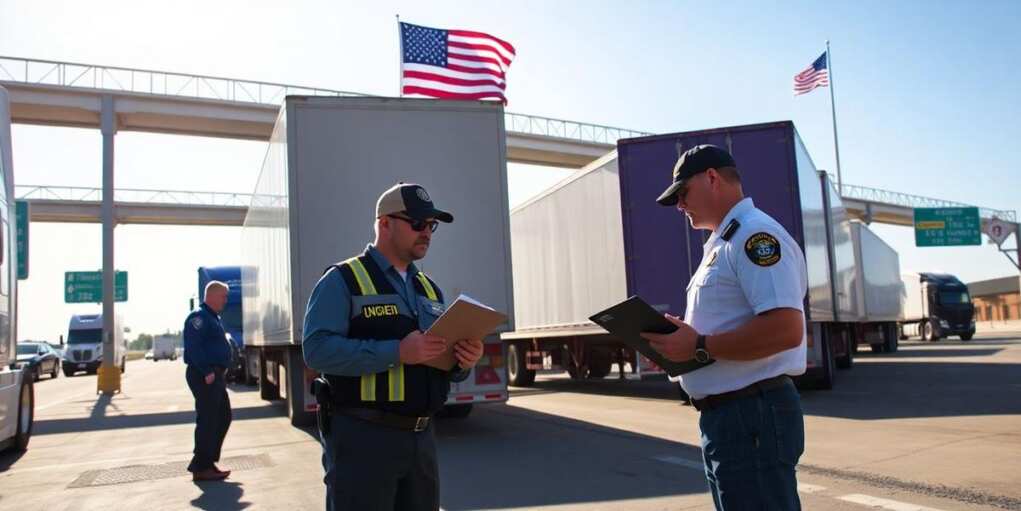Trump Radically Cleans Up Truck Driving Industry

Federal transportation officials say more than 7,200 semi-truck drivers have been taken off U.S. highways since new English language standards took effect in late spring. The change arrived after years of looser rules that let too many slip through.
The policy came from the Department of Transportation under Secretary Sean Duffy. He tied the effort directly to safety and to a larger push to restore order in a critical industry. The timing followed a run of horrific crashes that rattled families far beyond the scene.
“[DOT] requires commercial truck drivers to speak and understand English to operate a big rig- or they will be taken out of service,” Sean Duffy said on X. “This is about [President Trump] and his administration making America’s roads SAFE again!”
Officials say nearly 7,250 drivers have already been placed out of service for failing the updated English proficiency standards. The prior administration had watered down the requirement, which opened the door to foreign drivers with little or no English behind the wheel of massive rigs.
The new standards are also designed to crack down on a black market trucking network. That system leans on low-wage drivers and shell companies, then vanishes when there’s a wreck. Federal authorities say language gaps compound the danger in fast-moving, high-stakes traffic.
A recent tragedy in California put the issue in painful focus. An illegal alien from India is accused of killing three Americans on a state highway. California had issued him a commercial license and, according to federal officials, did not require him to meet the new English rules.
“My prayers are with the families of the victims of this tragedy. It would have never happened if Gavin Newsom had followed our new rules,” Sean Duffy said. “California broke the law, and now three people are dead and two are hospitalized. These people deserve justice. There will be consequences.”
Duffy is now threatening to withhold millions in federal funds from California for failing to follow the national English standards tied to commercial licenses. That fight could reshape how every state handles licensing for interstate trucking.
Another case underscored the problem across state lines. An illegal alien from India is accused of killing three people after making an illegal U-turn on a Florida highway. Records show he failed a written exam ten times yet still secured a commercial license.
Two sanctuary states, Washington and California, issued him that license. After the fatal crash, the driver took a DOT English assessment and failed it badly. He answered only two of twelve verbal questions correctly and identified only one of four traffic signs.
Supporters of the crackdown say these cases show why English matters: roadside commands, hazard alerts, weather advisories, and emergency detours all hinge on clear understanding. In a loaded tractor-trailer, seconds count, and confusion can be fatal.
Industry veterans also point to fraud schemes that shuffle drivers between carriers and states. Stronger national rules make it harder to hide poor records or language failures. Federal officials argue the goal is simple—make sure a driver can communicate, read signs, follow instructions, and call for help.
Critics warn about labor shortages, but the administration’s stance is that safety comes first. The White House emphasizes it grew the rulebook out of real crash data and intends to keep pushing until the backdoor operations shut down.
The message is direct: if a driver can’t meet the standard, they won’t be hauling 40 tons past your family on the interstate. And if a state tries to skirt the rules, the funding spigot is at risk.

